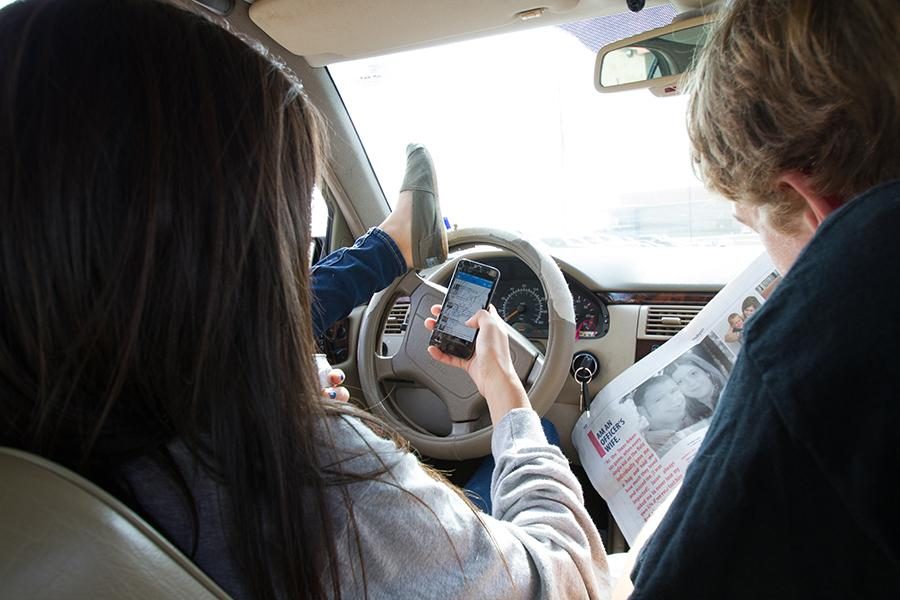Stricter laws, safer driving
Tougher laws could help teens be more careful behind the wheel
Photo by Sydney Steed
photo illustration
November 4, 2013
No teenager necessarily wants to think about creating more restrictive driving laws. To us, sometimes it feels like they’re only in place to ruin our fun or to take away our freedom. But with the recent death of a Texas High alumna, us teens may want to consider the alternative.
The numbers don’t look good for teens on the road. Each year around 300,000 teens are injured in crashes and 20 percent of these crashes involve a distracted driver. But these aren’t just numbers; they’re the people injured or killed in these accidents. At 3:25 p.m. on Oct. 19, Maggie Minter swerved off Highway 59 and flipped her green Mitsubishi Montero three times, before leaving her dead. Though the police are still investigating her case, this leaves her loved ones without answers.
Texting while driving is the cause of 10 teen deaths everyday. It’s not as if teenagers don’t know better; the message is stapled everywhere in schools, on television and through just about every other medium. But with over 50 percent of high school teens admitting to texting while driving, it isn’t working. It falls upon the government to help those that won’t help themselves.
It’s not just texting and driving. Around 60 percent of teen drivers in fatal crashes involving alcohol also involved the driver not wearing a seatbelt. Speed-ralted crashes account for 34 percent of fatalities among 16-19 year olds. Overall, crashes are the leading cause of death in teenagers in the US. We have several laws and precautions in place to prevent teenage driving infractions, but obviously they are not enough. This is a trend that needs to be fixed, but it can’t be done without serious action.
Those against implementing stricter driving laws claim that they infringe on the freedoms of younger Americans. But in the ever-swinging pendulum of society, sometimes we have to sacrifice freedom for citizen’s safety. But we shouldn’t necessarily eliminate the freedom of teen drivers. It comes down to the government to draw the line between limiting freedoms and ensuring public safety.
The current standards in Texas are especially weak when it comes to drivers between the ages of 18-21. Over the past three years, there has been a substantial decrease in driving infractions in younger teens (16-18) and an increase in the older group. Texas needs to adopt a policy similar to that of Arkansas; requiring drivers 18-21 to use hands-free cell phones and all texting while driving is banned.
But it’s not only the government’s responsibility. We all have a moral duty to look out for others. It comes down to doing what’s right–what’s smart. When one person decides to text while driving, drive under the influence or drive while otherwise hindered in any way, it jeopardizes the lives of many.
With the dangerously high numbers of teenage car accidents, something should be done on the legislative level. Our leaders should put an emphasis on keeping teens, as well as others, safe on the road.
(statistics from iknoweverything.com and keepthedrive.org)















